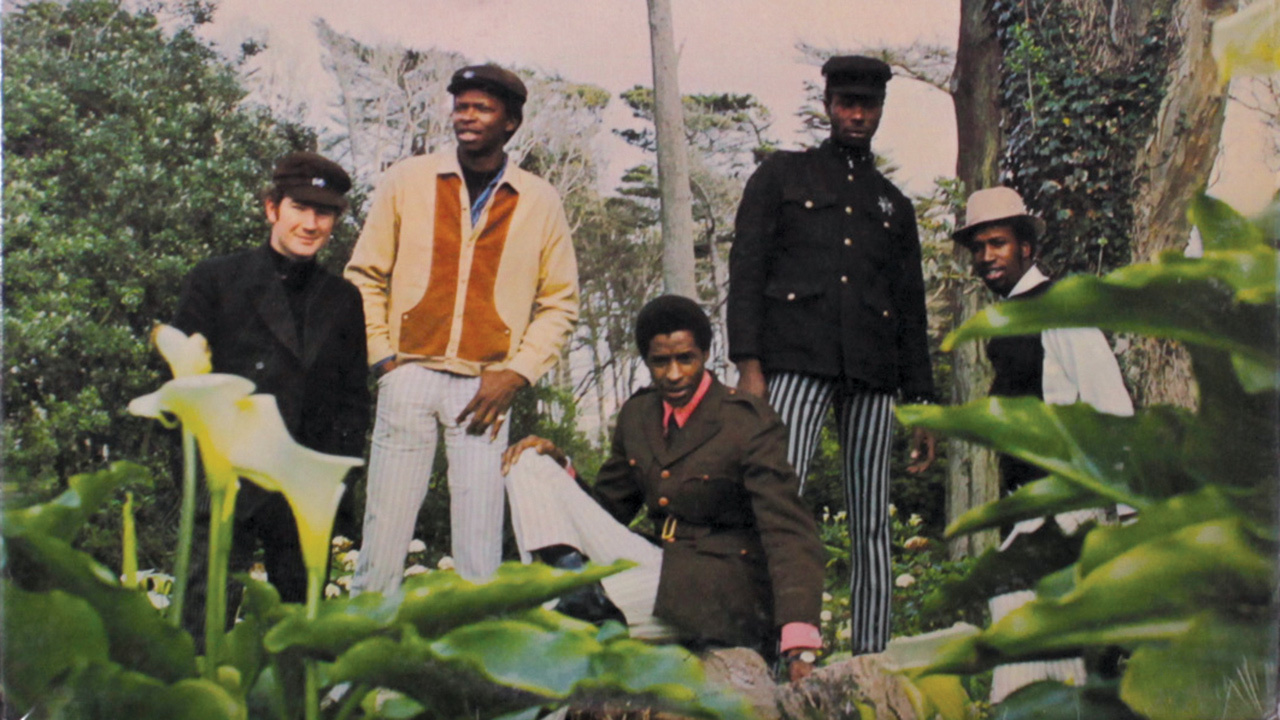For whatever reason, not many bands who’ve come from a soul background have ever effectively embraced psychedelic prog. The Chambers Brothers are one of the exceptions.
Hailing from Mississippi, they got their first taste of musical performance in a local baptist church. When eldest brother George was discharged from the army, they relocated to LA, and spent the next decade playing a mixture of gospel and folk. It was in ’65 when they got their big break. American folk singer and former member of the Weavers, Pete Seeger helped get them on the bill for the prestigious Newport Folk Festival, and they received such a strong reception that it led to further appearances at high profile venues like Fillmore West in San Francisco and Fillmore East in New York.
By this juncture, the brothers – bassist George, guitarists Willie and Joe plus harmonica player Lester – had developed a style that was a mix of rock and soul, with daubs of gospel and blues. But by 1967, when The Time Has Come was released, they’d signed to Columbia, convincingly reinventing themselves as a band, and had revised their approach to include more than a hint of the psychedelic sound which was sweeping the nation at the time. It’s on this album where it all comes into fruition. With the addition of drummer Brian Keenan, the band stretched out and engagingly explore how to organically meld their established soul and gospel inferences with a more rigorous psychedelic routing. It’s a triumph.
Things begin with All Strung Out Over You, before a majestic version of People Get Ready, punctuated by some deft guitar touches. Much of the rest of the tracks here – and there are 10 in total – flow in the same pattern, as The Chambers Brothers show just how to combine all these elements without ever making it sound forced.
But there’s one track that stands taller than the rest, an 11-minute stroke of pure genius called Time Has Come Today. A 1968 single edit, clocking in at just over three minutes in length, was the band’s biggest hit, reaching number 11 in the US chart, but it’s the long form album version that’s a real triumph. This is the apogee of the band’s craft: a remarkable epic that eases its way into a densely driven initial rhythm, with the addition of fuzz and clean guitar, as well as cow bells. It cleverly winds down after three minutes, before relocating to a surreal, acid-fuelled instrumental passage that re-emerges to connect with the early part.
It’s the centrepiece of an album that shows how psychedelic prog and soul really can co-exist.
It's Prog, Jim, But Not As We Know It: David Gates

